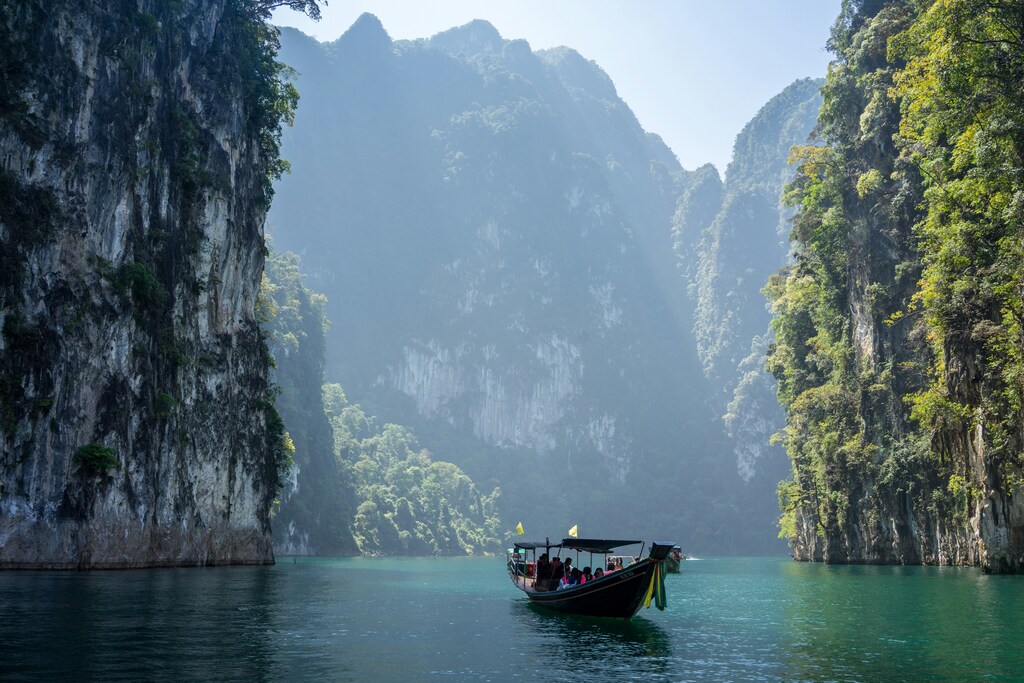Updated in January 2025!
Having lived in Thailand since 2019, I’m often asked about the best time to visit and what the winter climate is like. The answer is straightforward: December, January, and February are Thailand’s high season – and for good reason.
The rainy season is over, the nature is in full bloom, and the greenery is at its peak. But this also means: Tourism overload!
Thailand has been a top tourist destination for years, attracting millions of visitors annually. According to a Reuters report, Thailand is projected to welcome 39 million foreign tourists in 2025, potentially reaching a record 40 million, surpassing pre-pandemic levels.
Why visiting Thailand in winter is still worth it, what you can expect, and what to watch out for – you’ll find all that in this article!
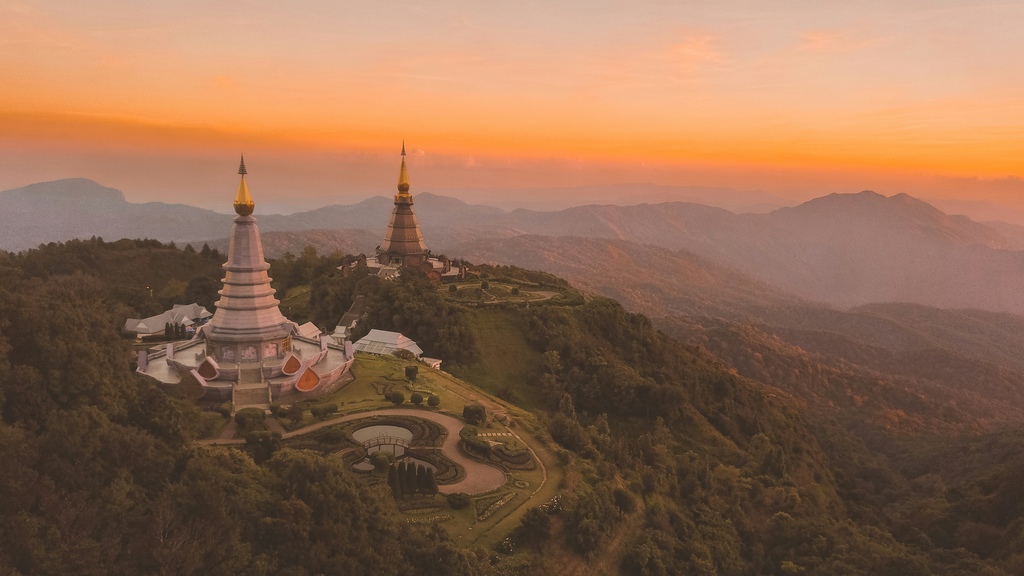
Weather Overview: Thailand’s Climate
Did you know that it actually snowed in Thailand once? It happened in January 1955 in Chiang Rai province. After a few hours, the snow had melted. But don’t worry: This was truly a historic exception.
Thailand has three main seasons: the cool season from November to February, when the weather is dry and comfortable, the hot season (also called dry season) from March to May, when temperatures can get pretty high. April is usually the hottest month throughout Thailand.
Then there’s the rainy season (also called wet season) from June to October, with warm but heavy rains that come and go. Still, you’ll have some sunny days. The heaviest rains fall during November in the south-west and a bit earlier in the northern regions and west coast.
Thailand in Winter: Cooler Temperatures in the North
Northern Thailand offers a refreshing change in temperature, especially during the winter months. In places like Chiang Rai and Chiang Mai, you’ll find cooler temperatures compared to the rest of the country. This region can get quite chilly, with average temperatures ranging from 55-70°F (13-21°C) during the coldest months.
It’s a big contrast to the warm and tropical climate in other parts of Thailand, making it a great destination if you prefer a cooler, more temperate atmosphere.
Thailand in Winter: Warm and Dry in the South
Southern Thailand is a tropical paradise during the winter months with warm and dry weather. In places like Koh Phangan and the southern islands, you can expect clear skies and plenty of sunshine. Rainfall is minimal, usually less than 1-2 inches (25-50 mm) per month.
Temperatures typically range from 79-86°F (26-30°C), creating ideal conditions for enjoying the tropical beaches, calm seas, and outdoor activities.
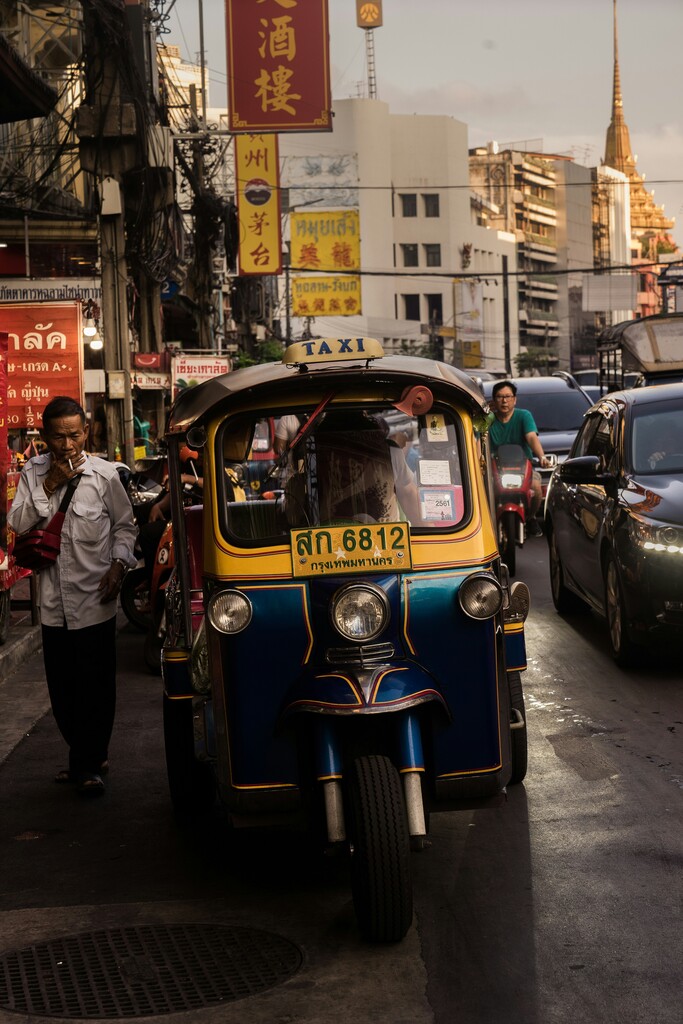
Where to go in Thailand in Winter?
Here are my favorite places to visit in Thailand during winter. I’ve personally been to all of them and found them excellent both as a couple and as a family.
Chiang Rai and Chiang Mai
Chiang Mai and Chiang Rai are perfect places for those who want to explore the culture and religion of Thailand. These cities are home to some of the most breathtaking temples in the country:
- Wat Phra That Doi Suthep in Chiang Mai: Perched on Doi Suthep mountain, this temple offers breathtaking views of Chiang Mai and features a stunning golden chedi. It’s one of the most sacred sites in northern Thailand.
- Wat Rong Khun (White Temple) in Chiang Rai: Wat Rong Khun is a modern, all-white temple known for its intricate design symbolizing purity. Designed by artist Chalermchai Kositpipat, it blends traditional Buddhist elements with contemporary art.
- Wat Rong Suea Ten (Blue Temple) in Chiang Rai: Known for its striking blue and gold design, this temple features intricate artwork and a giant blue Buddha. Completed in 2016, it’s a vibrant and modern addition to Chiang Rai’s temple scene.
- But these regions are also known for their hilly landscapes. If you’re in Chiang Mai, you should definitely visit Doi Inthanon National Park. It’s home to Thailand’s highest peak, Doi Inthanon, standing tall at 8,415 feet (2,565 meters). Hike through lush forests and be sure to stop at the stunning waterfalls like Wachirathan and Sirithan.
Find out my favorite things to do for families in Chiang Mai.
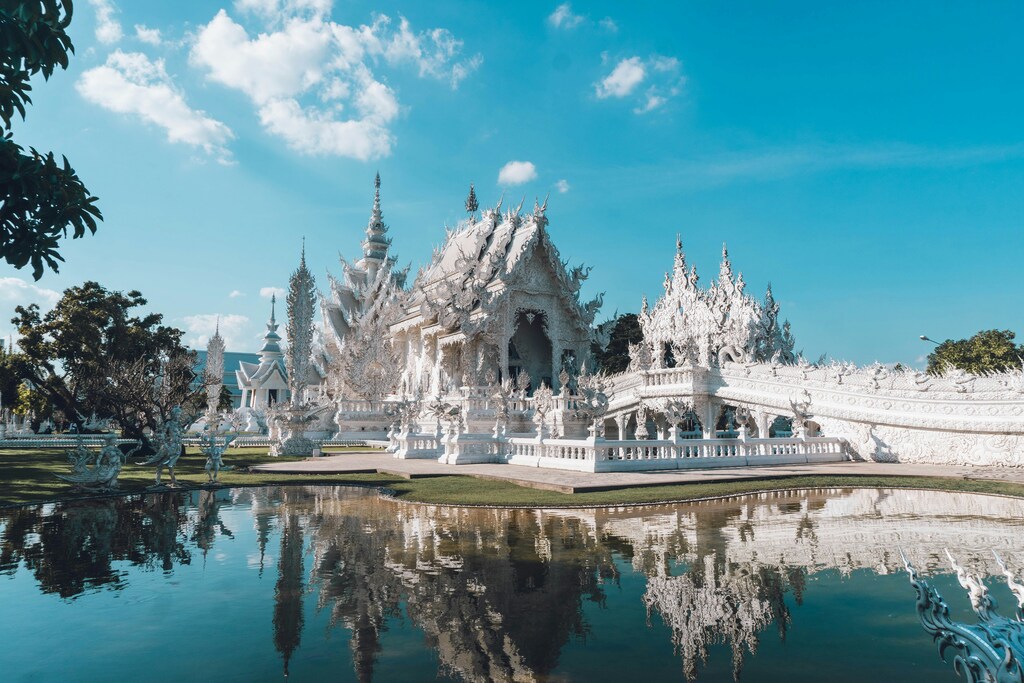

Bangkok
Here, in the capital city, is where most international journeys begin. I would definitely recommend that anyone who hasn’t been to Bangkok before stay for a few days. I know, at first, it can be overwhelming. But trust me, after 24 hours, you’ll get used to the bustling crowds, the smells, and the sights of this metropolis, and you’ll start to enjoy it.
In Bangkok, a visit to the Grand Palace and a boat ride on the Chao Phraya River are musts. I also recommend checking out the gigantic shopping malls and visiting a floating market. Finally, don’t miss out on a sunset cocktail at one of the legendary rooftop bars. My husband and I love spending 1-2 nights in Bangkok regularly without the kids. There’s always something new to see and discover.
Discover the top activities for kids in Bangkok that I’ve tested myself.
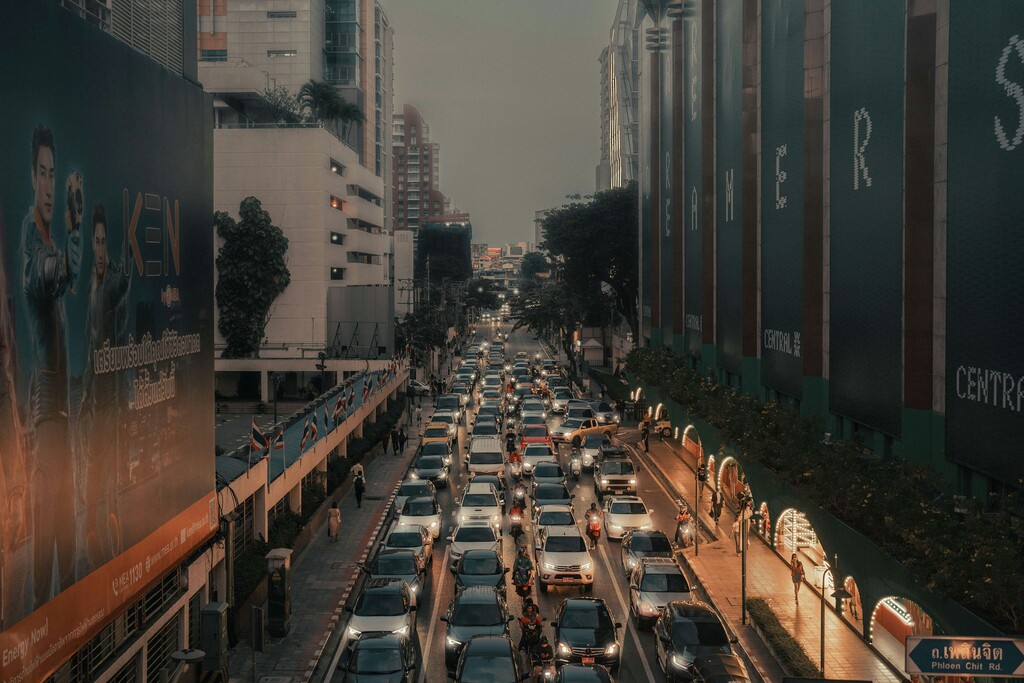

Phuket
Thailand’s largest and most popular island, Phuket, is located in the Andaman Sea, off the west coast of mainland Thailand. Here, you’ll find plenty of beautiful beaches, water sports, and entertainment.
There are great water parks and a vibrant bar scene in Patong. The island is also known for significant cultural sites like the Big Buddha, Wat Chalong, and Old Phuket Town, where you can explore Sino-Portuguese architecture, local markets, and street food. Additionally, you can easily make a day trip to Koh Phi Phi and Maya Bay.
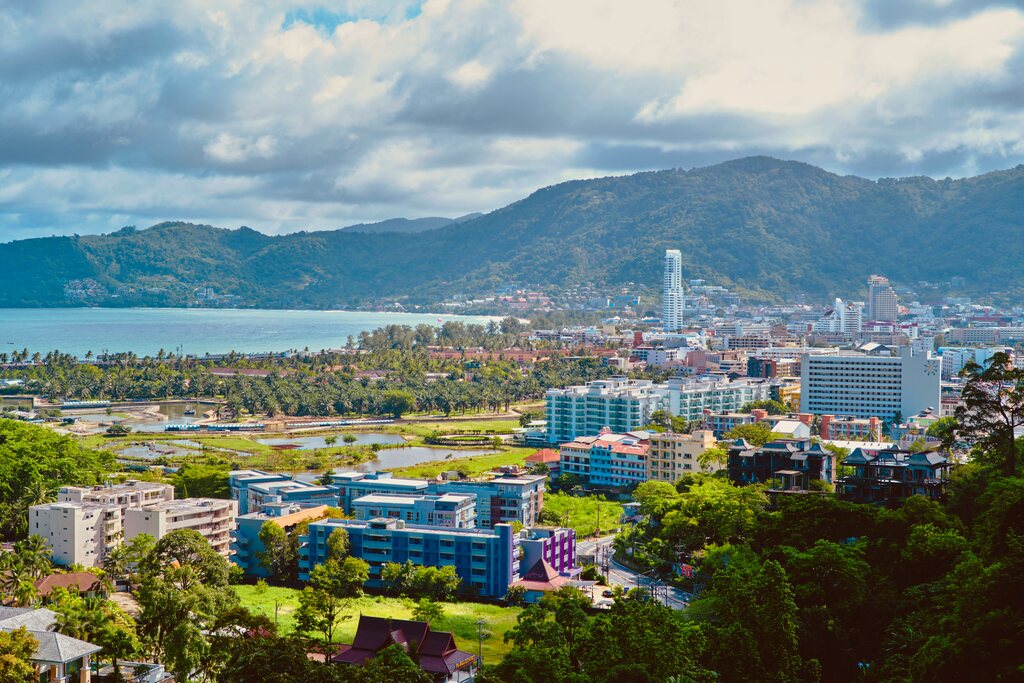

Krabi
Krabi is just a 3-hour ferry or car ride from Phuket and offers a one-of-a-kind landscape. Its stunning limestone cliffs rise dramatically from the turquoise sea—perfect for rock climbing or just admiring from the most beautiful beaches like Railay and Ao Nang.
Krabi is also famous for its hidden caves and emerald pools, where you can swim in nature’s own secret spots. The vibe here is laid-back with lots of Indian influences (yummy food!), but it can get extremely busy and touristy in winter.
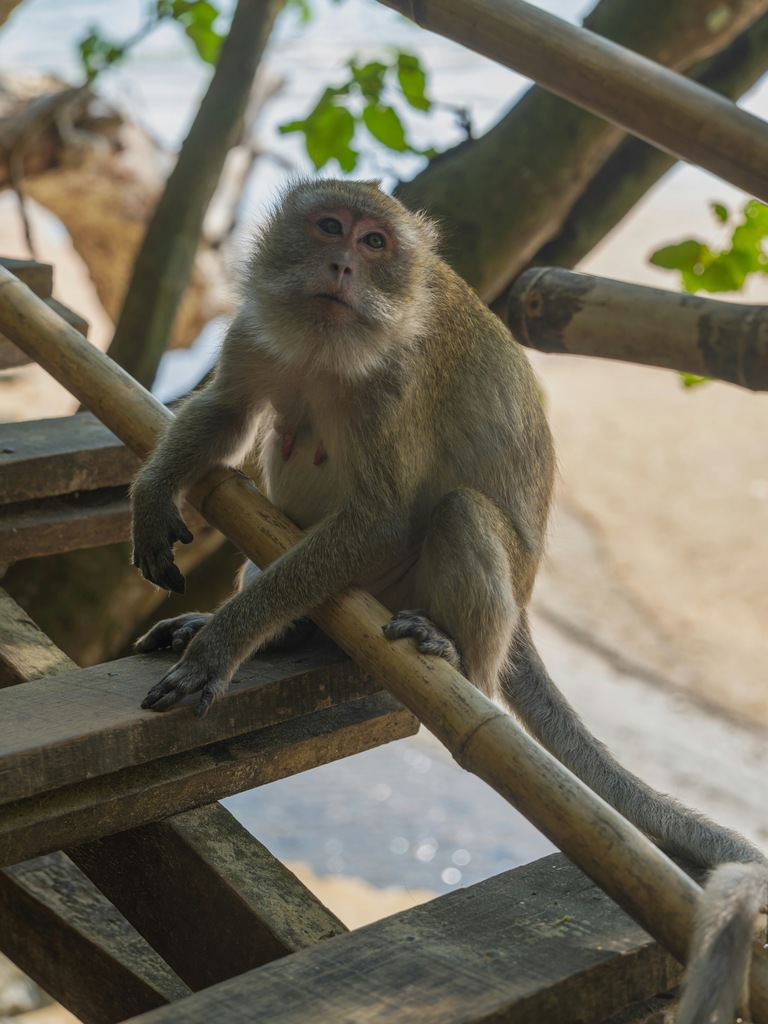

Koh Samui, Koh Phangan, and Koh Tao
These three islands on the east coast of the Gulf of Thailand are must-visits. The sea here is much calmer than in the west. Samui is special for its mix of luxury and natural beauty, with palm-fringed beaches, fancy resorts, and vibrant nightlife.
Koh Phangan is all about the coolest parties, but it’s also a peaceful paradise with hidden beaches and yoga retreats when the parties are over.
Koh Tao is the diving haven of Thailand, with crystal-clear waters, vibrant coral reefs, and a laid-back vibe that makes it easy to fall in love with the island. Take a look at my comparison of Koh Tao and Koh Phangan!
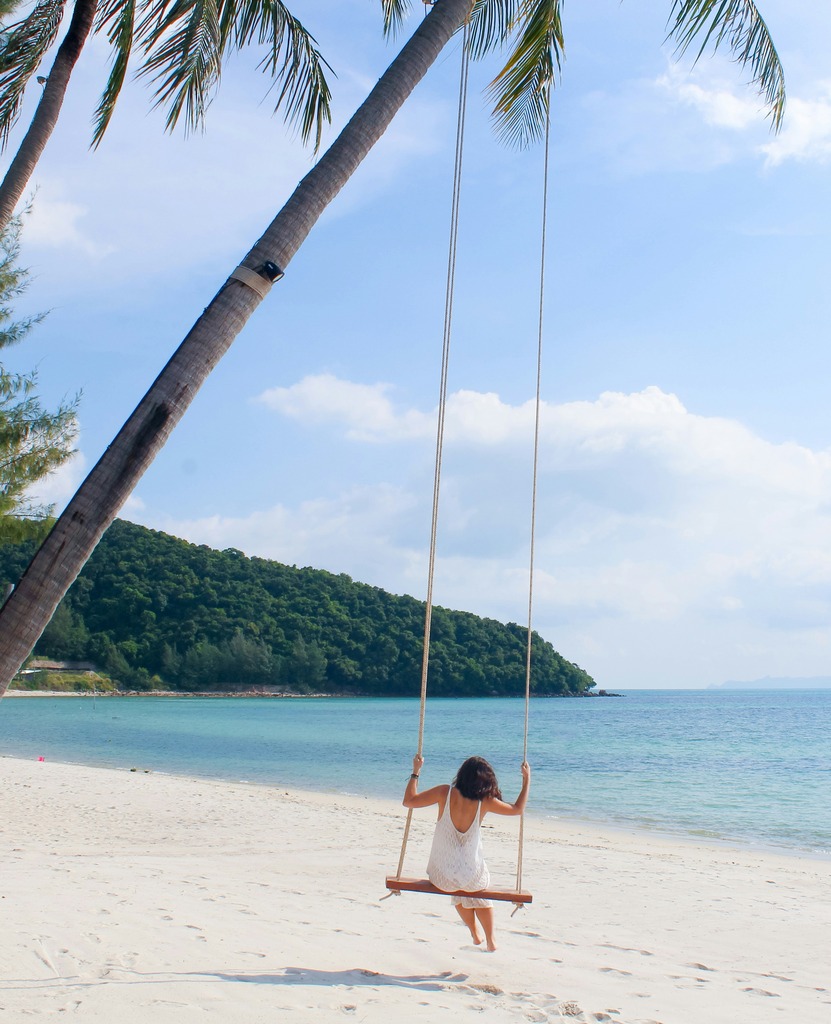

Thailand in Winter: Practical Tips
What to Pack
We’ve already established that the weather in Thailand in winter is very pleasant. So, you don’t need to pack a thick jacket. Stick to summer clothes, swimwear, a pair of sandals, and some sturdy shoes for hiking. However, it’s a good idea to pack a sweater or a light jacket. It can get a bit chilly on the scooter in the evenings. Simple rain jackets are available at every 7-Eleven for a few dollars, so you don’t need to bring one.
Here’s my article on what to wear in Thailand.
Best Time to Travel during Winter in Thailand
High season is, of course, the time when most tourists are in the country. Consequently, prices are significantly higher than usual. But there’s another time when prices reach their peak: Peak Season. This typically runs from around December 20th to January 10th.
During this period, you can easily pay ten times the regular rate for accommodation, and everything is completely packed. In addition, there are the country’s festivities, during which prices also rise significantly.
Festivities in Thailand in Winter
There are several festivals that take place in Thailand during the winter months. While these are great for getting to know the culture better and experiencing something special in the country, it unfortunately often means that prices rise again during this time. Here’s a list of festivities you can look forward to in Thailand in winter:
- Loy Krathong (November/December): Celebrated on the full moon of the 12th lunar month, this festival often falls in late November or early December. People float decorated baskets (krathongs) on rivers and lakes to pay respect to the water spirits.
- King’s Birthday (July 28th): A national holiday celebrating the late King Vajiralongkorn‘s birthday, marked by ceremonies, parades, and public celebrations across the country.
- Christmas (December 28th): While not a traditional Thai holiday, Christmas is widely celebrated in tourist areas with decorations, festive events, and parties.
- New Year’s Eve and New Year’s Day (December 31st – January 1st): Thailand celebrates the Western New Year with fireworks, countdown events, and parties across the country, particularly in Bangkok and beach destinations like Phuket and Pattaya.
- Children’s Day (Second Saturday of January): A fun day for kids, with special events, free activities, and entertainment hosted at schools, zoos, and public spaces throughout Thailand.
- Chinese New Year (January/February): Celebrated primarily by Thai-Chinese communities, especially in areas like Bangkok’s Chinatown. The festival includes lion dances, fireworks, and family gatherings. The exact date varies based on the lunar calendar.
- Chiang Mai Flower Festival (First weekend of February): Held in Chiang Mai, this colorful festival features parades, floral displays, and a beauty contest, all showcasing the region’s beautiful blooms.
- Makha Bucha Day (February): A significant Buddhist holiday celebrated on the full moon day of the third lunar month. It involves temple ceremonies, candlelit processions, and merit-making activities.
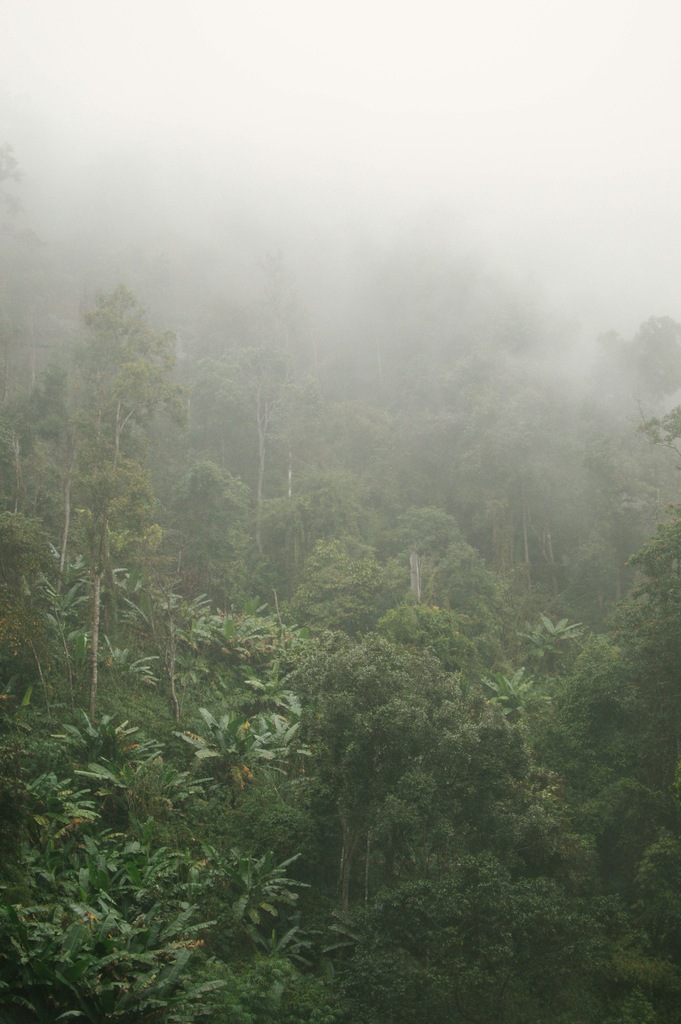

– The Most Important Vaccines for Thailand Travel
– 35 Interesting Facts About Thailand
– What to Wear in Thailand?
– Celebrating Christmas in Thailand
Conclusion: Why Thailand in Winter is an Excellent Time to Visit
As you can see, Thailand has many advantages in winter: The weather is at its best, nature is green and lush, and there are many great events to get to know Thai culture better. However, it’s also the time of year when it gets really crowded, and prices go up. If you generally don’t mind that, then you should visit Thailand in winter.
When is your favorite time to visit Thailand? Do you have any questions about Thailand in winter? Let me know in the comments!
Thanks for reading and for making me a part of your day! Yours, Lulu
Just a heads up: some links in the article “Thailand in Winter” on Nomadmum.com are affiliate links. This means if you click and buy, I might earn a small commission at no extra cost to you.

